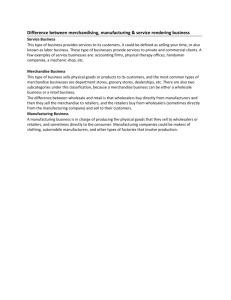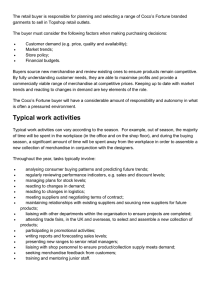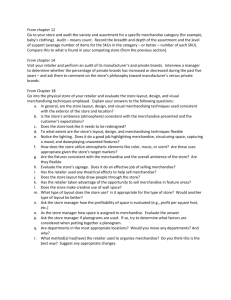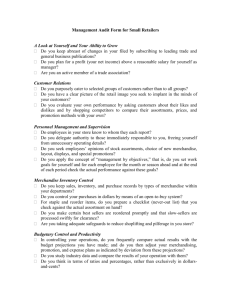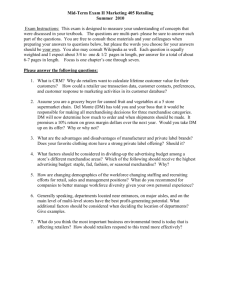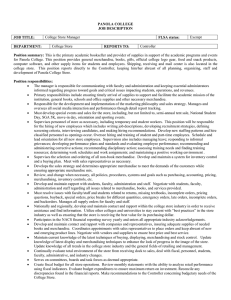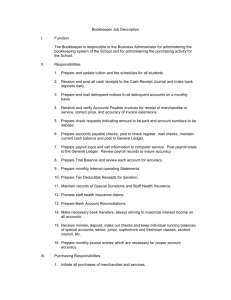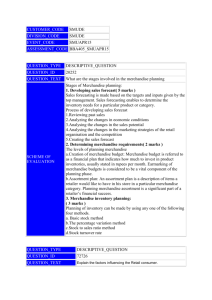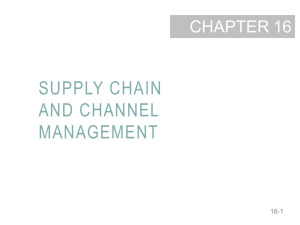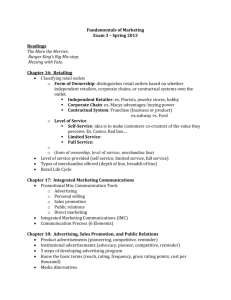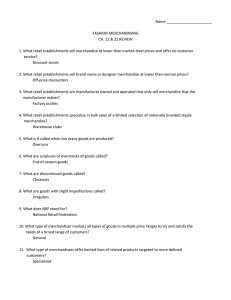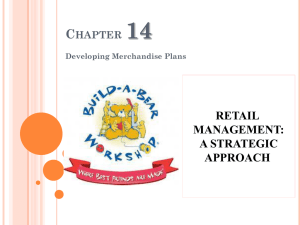Merchandise planning
advertisement
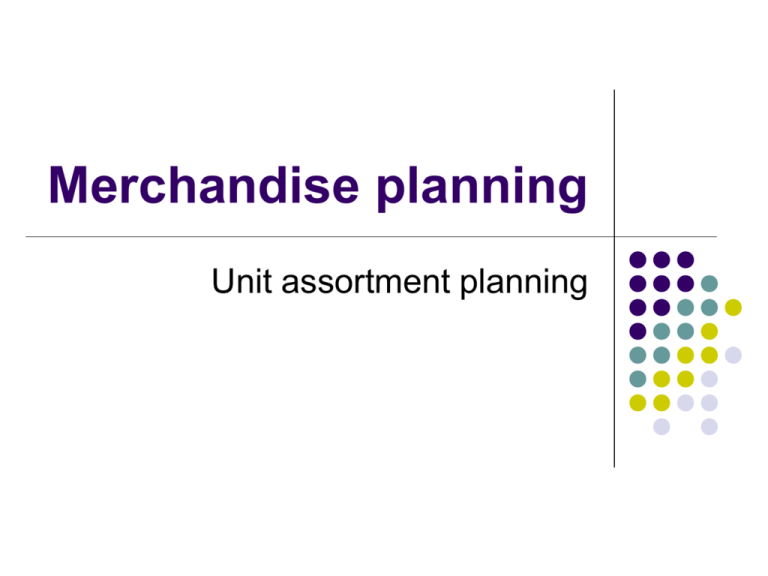
Merchandise planning Unit assortment planning Merchandise planning process Formulation of objectives Establishment of policies Implementation of policies to carry out department or store objectives Dollar planning – budgets Unit planning – basic stock list and model stock plan Considerations in unit planning Merchandise quality. Price range Choice of national brands or private brands Good taste Proper timing/product life cycle Variety of product lines (product mix) Assortment strategy Factors affecting Unit planning Type of retail institution Past sales records Determination of consumer wants Type of goods offered Elimination of merchandise Type of Retail Institution Consistency Availability of capital resources Particular trading area served by the store Nature of goods carried Competition in the trading area Past Sales Records Considerations: weather economic trends labor strikes supply conditions market opportunities anything that affected sales activity in a period Determination of consumer wants Types of Goods Offered Fashion goods Seasonal goods Convenience goods Soft goods Hard goods Staple Impulse Shopping goods Specialty goods Elimination of merchandise lines Avoiding Mistakes Knowing when to eliminate products Pay attention to stock turnover and rate of sales for each item Does a substitute that offer better merchandising opportunities? Have merchandising efforts have failed to improve the sale of goods? Does it contributes to the sales of other products? Planning a basic stock list Planning a basic stock list Homogeneous and heterogeneous staples Seasonal and non-seasonal staples Planning a Model Stock Plan Classification Price Size Materials Color Quantity to Purchase Period for which purchasing is done Estimated sales for the period Merchandise on-hand and on-order Desired merchandise at the end of the period. Period for which the purchasing is done Open-to-buy Hand-to-mouth buying Speculative buying Quantity discount Desired merchandise at the end of the period Sales trends Popularity of fashion Stage in the product life cycle Price fluctuations in the marketplace Availability of supplies and materials Types of goods remaining in stock Type of retail institution Supply conditions Discounts Is it a new item?
